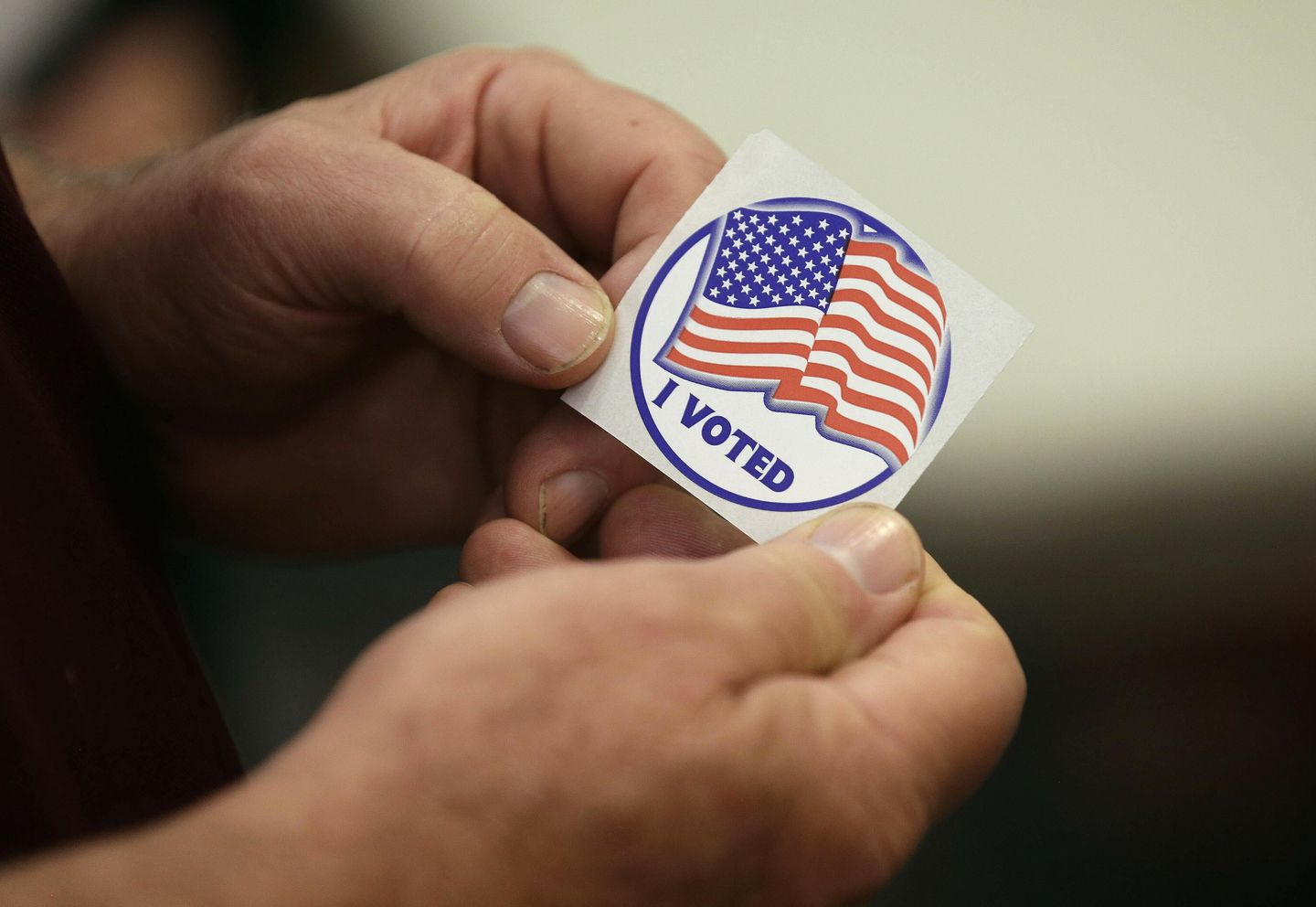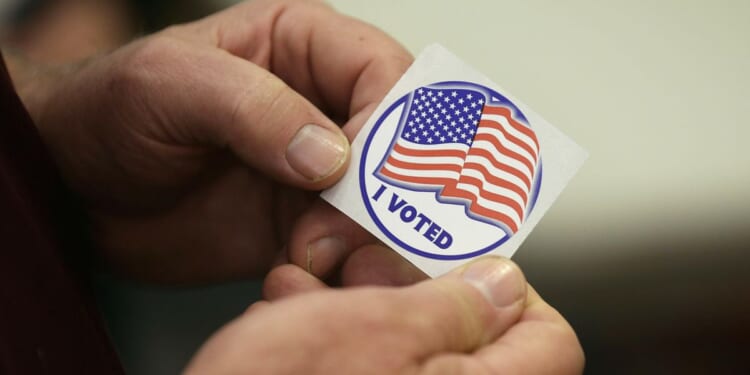
Eloy Alberto Zayas-Berrier was part of the infamous Mariel boatlift that brought 125,000 Cubans, including criminals and mental hospital patients, to the U.S. in 1980.
He’s been here ever since in a bizarre legal limbo. He can’t qualify for citizenship and Cuba has refused to take him back, so he’s been stuck on “parole.” He remains here with only the barest of legal protections and cannot get a green card. He is decidedly not a citizen.
That did not, however, stop him from showing up at an early-voting location in North Carolina on Nov. 5, 2016, where he not only registered and claimed to be a citizen, but cast an early-ballot vote that same day.
Mr. Zayas says he went with a friend who was planning to vote. He says the poll worker encouraged him to sign up and vote, too.
He showed his government-issued work permit as identification. The poll worker filled out a form for Mr. Zayas, who cannot read English. He registered as a Democrat. And then he cast his ballot.
To hear the fact-checkers, Mr. Zayas is rarer than a lightning strike. They say noncitizens just don’t vote in U.S. elections. They have too much to lose, the system can detect them, and there’s just no incentive to do it anyway.
Former President Donald Trump and House Speaker Mike Johnson disagree.
In a high-profile meeting last month the two men found common ground in declaring noncitizen voting a serious threat to ballot integrity.
Mr. Johnson in particular said illegal immigrants allowed in by President Biden’s border chaos are showing up at government offices to sign up for benefits and services, and when they do they’re being prodded to sign up to vote.
Neither side can say with certainty whether that’s common or rare, but it is undeniable that it happens — as a series of criminal cases out of North Carolina shows.
Federal prosecutors in the state brought charges against 37 noncitizens who voted in the 2016 election. Some, like Mr. Zayas, voted in many more elections. Others were one-time voters, showing up, registering and casting a ballot all on the same day in 2016.
It’s about as good a sample size as is possible for this type of thing, and some trends emerged from the data.
• The noncitizen voters spanned a wide range of races and ethnicities, with seven listed as Asian, eight as Black, 10 as Hispanic and two as White. One was multiracial, five were listed as “other” and three showed no data. One was incongruously listed as American Indian or Alaskan Native.
• The 37 migrants cast a total of at least 99 ballots in records dating back to the 1996 election. Most voted only in big federal election years, though one regularly voted in municipal elections too.
• Some of the migrants remain on the voting rolls even after having been convicted and sentenced for their crimes.
• They were far more likely to be Democrats than Republicans, by a three-to-one ratio.
Partisan politics even seemed to play a role in who got registered. The assistant U.S. attorney who handled many of the cases told a judge that one official accepted a noncitizen’s application once it became clear he planned to vote for Hillary Clinton in the 2016 election.
Liberal-leaning civil rights groups dismiss worries about noncitizen voting as erroneous and misguided.
“Noncitizens are not voting in federal or state elections,” proclaimed the Brennan Center in a piece in April. Brennan pointed to its work from the 2016 election where it surveyed 42 jurisdictions and found election officials referred just 30 cases of “suspected noncitizen voting” for investigation.
Sean Morales-Doyle, Brennan’s director of voting rights, ticked off several checks and incentives to prevent noncitizens from voting. He said the fact that it’s a crime, that there’s a record of the crime and that it can disqualify someone from obtaining citizenship in the future are all deterrents.
“And election officials conduct regular maintenance of these voter lists — in fact, they’re required to by federal law,” he wrote.
None of those deterrents seemed to stop Juan Francisco Landeros-Mireles.
He saw people lining up at a food pantry one day, went to get in line with them and ended up registered to vote. He would go on to cast ballots in 2012 and 2016.
James Todd Jr., his lawyer, said Mr. Landeros-Mireles came from Mexico decades ago and is illiterate in English so someone else filled out the form and had him sign it. Mr. Todd said he’d handled a half-dozen noncitizen voting cases and the story was usually the same.
“All I know is, your honor, it seems that even the North Carolina Board of Elections, sometimes their volunteer staffers aren’t aware,” Mr. Todd said.
He added: “The fact of the matter is, when you go to vote in person, you are asked your name and your residence and then you’re asked to sign on the list there. There’s no questions about citizenship at that point.”
U.S. District Judge James C. Dever III wasn’t impressed, saying it was a pretty basic tenet that voting is reserved for citizens.
The judge also pointed out that Mr. Landeros-Mireles was already benefitting from America because he was living off taxpayer-funded disability checks.
“What a wonderful country we live in,” the judge said. “What a wonderful country that we live in that we as a society are caring for him, right? It is. It’s truly a wonderful country, right? He’s getting benefits, right?”
He gave Mr. Landeros-Mireles two years of probation with the first two months to be served in home confinement. He approved a special exception to let Mr. Landeros-Mireles leave his home to cash his government benefit checks at Walmart.
Judge Dever also presided over the case of Daniel Tudeusz Romanowski, a citizen of Poland, who also claimed to have registered and voted by accident.
His lawyer said he went with his girlfriend who was applying for food stamps and thanks to the so-called Motor Voter law they were both asked to register to vote.
“He said, ‘Can I sign up? I’m a legal permanent resident.’ And the person said, ‘I’m not sure. I can sign you up,’” said Stephen Gordon, the public defender in the case. He said Mr. Romanowski actually left the citizenship box blank but did sign the form to attest that he was a citizen, and then proceeded to vote in both the 2012 and 2016 elections.
“I just did a big mistake,” Mr. Romanowski told the judge.
J. Christian Adams, president of the Public Interest Legal Foundation, which has been studying noncitizen voting, said he was struck by how “nonchalant” election officials were about noncitizens ending up on the rolls and casting ballots. He said the North Carolina cases fall “somewhere between acquiescence and collusion.”
“It’s a blind eye,” he told The Washington Times. “It’s not being taken very seriously and it’s lying in plain sight. Folks who say that’s not happening are not telling the truth.”
One noncitizen, Dora Maybe Damatta-Rodriguez, blamed President Obama and Fox News for talking her into breaking the law to cast a ballot.
She came from Panama when she was a teen and was here as a legal permanent resident, never obtaining citizenship. In 2016, in her 60s, she said she heard Mr. Obama say in an interview that immigrants, whether here illegally or not, didn’t need to be afraid of voting.
Her lawyer added that Fox News reported that Mr. Obama had said immigrants could vote.
“It was when the president said that, maybe I got confused, but I was — I had so much joy,” Ms. Damatta-Rodriguez told a judge. “I was so happy that I was finally — maybe my vote could help my grandkids or my kids.”
She said she went to election officials, showed her license and checked the citizenship box. They never questioned her claim and signed her up.
“I wasn’t being sneaky. I wasn’t cheating,” Ms. Damatta-Rodriguez said. “I wasn’t trying to ruin this country.”
Judge Louise Wood Flanagan challenged her, saying she knew she wasn’t a citizen. Ms. Damatta-Rodriguez countered by pointing to her history.
“I lived here, and I had five children in this country. I raised them,” she said.
The judge was struck by that attitude.
“I think she did it knowing that she wasn’t authorized to vote. And I don’t detect a lot of remorse here,” Judge Flanagan said. “I think she is very happy that she voted in that election and had the opportunity, as she says, to effect change.”
Judge Flanagan ordered Ms. Damatta-Rodriguez to serve 14 days in jail.
That was one of the stiffer sentences meted out in the cases.
Most of them ended with no jail time, and some ended with only a fine. Other cases were dismissed after the defendants finished pretrial diversion.
Among those who got pretrial diversion was Elvis David Fullerton, who voted in 16 elections from 1999 to 2016.
Ismay Prudence Kathleen James got prosecutors to drop her case after she suggested someone else may have registered and voted in her name.
The Bermuda citizen came to the U.S. on a tourist visa in 1988, married an American citizen and eventually won a green card signaling legal permanent residence in 2004.
Investigators said she told them an immigration official assured her that a green card meant she “can do anything a United States citizen can do.” She cast ballots in seven elections and primaries between 2004 and 2016.
Ms. James’s lawyer, though, denied she’d made those statements to investigators and said state election records only proved that someone was registered and voted in her name, not that she was the one who cast those ballots.
“A voter can be impersonated,” Alan Doorasamy said in court filings.
Ms. James’s name has been removed from the state’s voting rolls, as have most of those who faced prosecution.
But not all of them.
Six of the noncitizens are listed as “inactive” status, which means they haven’t voted recently but could show up at any time.
Then there’s Jose Jaime Torres — or Jose Jaime Ramiro-Torres, as he’s listed in court documents. The state database lists him as still an “active” voter in Washington County, despite having been found guilty and sentenced in 2019 for “voting by an alien.”
Washington County election officials referred questions about Mr. Torres to the State Board of Elections. The Times reached out to the state board for this story.
Mr. Adams said that suggested election officials are being too passive.
“I am stunned that these have not been canceled. Upon learning that they were noncitizens, they should have been canceled,” he said.
Assistant U.S. Attorney Sebastian Kielmanovich, who prosecuted a number of the cases, told one of the judges that bungling by election officials played a role in allowing the noncitizens to register and vote.
“In some cases they have shown a green card, which is actually evidence of noncitizenship because they’re here as immigrants and they still have been registered,” he said. “So that’s a problem on its own.”
He even suggested partisan politics may be at play in the case of Mr. Landeros-Mireles, who was registered as a Democrat.
“He was asked if he was going to vote Republican or Democrat, and he responded, ‘Para la señora,’ which means in Spanish ‘for the lady.’ And that then the employee at the polling location said, ‘Democrat, and let him vote,” Mr. Kielmanovich told the judge. “So there’s a very serious concern here that there may be some political reasons why some of these things are happening.”












